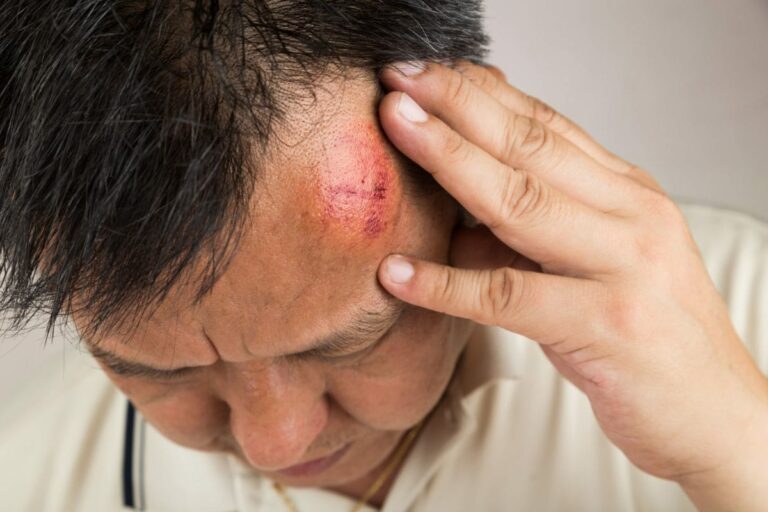Depression: How to Discover and Treat
Author: Giselle Robel
Giselle Robel
Category: Mental Health
Tags: symptoms, mental, depression, work

Depression is a common and serious medical illness that negatively affects how you feel, the way you think, and how you act. Depression causes feelings of sadness and loss of interest in activities you once enjoyed. It can lead to a variety of emotional and physical problems and can decrease your ability to function at work and home. Fortunately, it is treatable.
Symptoms of Depression:
- Feeling sad or having a depressed mood
- Loss of interest or pleasure in activities once enjoyed
- Changes in appetite weight loss or gain unrelated to dieting
- Trouble sleeping or sleeping too much
- Loss of energy or increased fatigue
- Increase in purposeless physical activity (e.g., inability to sit still, pacing, handwringing) or slowed movements or speech (these actions must be severe enough to be observable by others)
- Feeling worthless or guilty
- Difficulty thinking, concentrating or making decisions
- Thoughts of death or suicide
Symptoms must last at least two weeks and must represent a change in your previous level of functioning for a diagnosis of depression.
Depression: How Is It Treated?
For Depression, is one of the most treatable of mental disorders?
Before treatment, a health professional should conduct a thorough diagnostic
evaluation, including an interview and a physical examination.
In some cases, a blood test might be done to make sure the depression is not due to a medical condition like a thyroid problem or a vitamin deficiency (reversing the medical cause would alleviate the depression-like symptoms). The evaluation will identify specific symptoms and explore medical and family history or cultural and environmental factors to arrive at a diagnosis and plan a course of action.
Medication:
Brain chemistry may contribute to an individual's depression and may factor into their treatment.
For this reason, antidepressants might be prescribed to help modify one's brain chemistry.
These medications are not sedatives, uppers or tranquilizers. They are
not habit-forming. Generally, antidepressant medications have no stimulating
effect on people not experiencing depression.
Antidepressants may produce some improvement within the first week or two of
use yet full benefits may not be seen for two to three months.
If a patient feels little or no improvement after several weeks, his or her psychiatrist can alter the dose of the medication or add or substitute another antidepressant.
In some situations, other psychotropic medications may be helpful. It is important to let your doctor know if a medication works or doesn’t work for you. Or if it has side effects.
Psychiatrists usually recommend that patients continue to take medication for six or more months after the symptoms have improved. Longer-term maintenance treatment may be suggested to decrease the risk of future episodes for certain people at high risk.
Psychotherapy: This is a type of counseling that helps you learn how your emotions affect your behaviors. It's sometimes called talk therapy. A trained mental health specialist listens and talks to you about your thoughts and feelings and suggests ways to understand and manage them and your anxiety disorder and depression.
Cognitive-behavioral therapy (CBT): This common type of psychotherapy teaches you how to turn negative, or panic-causing, thoughts and behaviors into positive ones. You'll learn ways to carefully approach and manage fearful or worrisome situations without anxiety
Overview
Depression is a mental health issue that starts most often in early adulthood. It's also more common in women. However, anyone at any age may deal with depression.
Depression affects your brain, so drugs that work in your brain may prove beneficial. Common antidepressants may help ease your symptoms, but there are many other options as well. Each drug used to treat depression works by balancing certain chemicals in your brain called neurotransmitters. These drugs work in slightly different ways to ease your depression symptoms.
When it comes to treating depression, what works for one person may not work for another. Finding the right drug for your depression can take time.
If you start taking medication for your depression, allow time for trial and error, it can take at least six weeks for an antidepressant to work fully.
Learn about your disorder. The more you know, the better prepared you will be to manage symptoms and roadblocks along the way. Don't be afraid to ask your doctor any questions you might have. Remember, you are a key part of your health care team.
Ask your doctor how long it should take for your medication to work. If your symptoms of depression haven't improved by then, talk to your doctor. They may suggest another medication that may be more effective in relieving your depression.
Outlook
It can be challenging and frustrating to live with depression problems. The
constant worry and fear can make you feel tired and scared. If you've talked
to a doctor about your symptoms, then you've taken the first step toward
letting go of the worry.
It can take some time to find the right treatment that works for you, you may
need several kinds of treatment. For most people with depression, a
combination of medicine and counseling is best. With proper care and
treatment, you can learn how to manage your symptoms and thrive.













